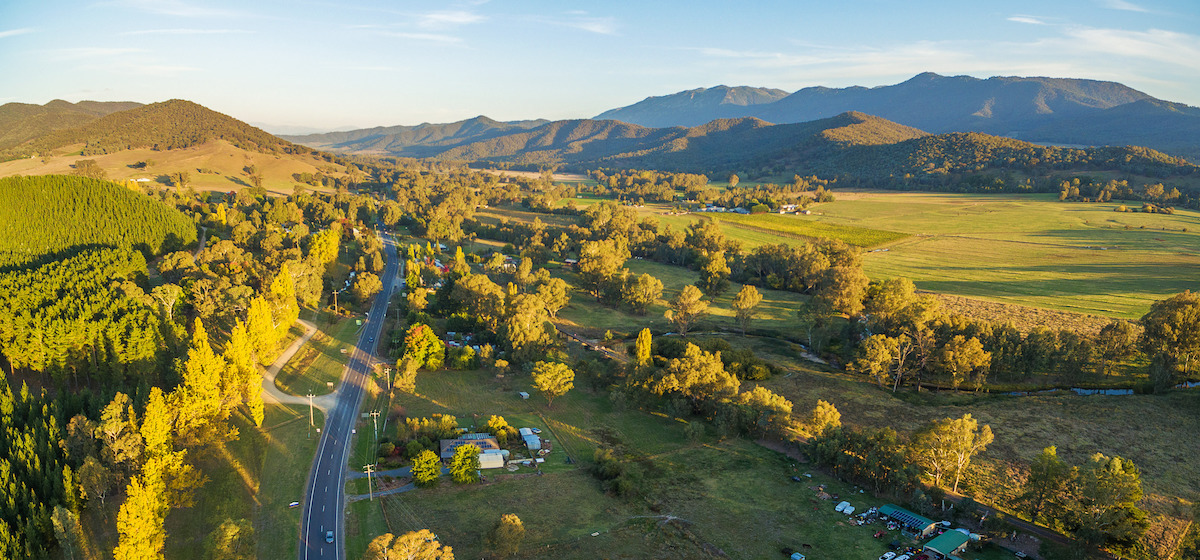Beryl lives in a regional area and is planning a trip to another regional area and wants to know if she is less likely to be affected by future border closures.
Q. Beryl
I live in Myrtleford (Vic) and want to travel through Albury to Bourke but I’m not ready to book accommodation just yet, as I’m still unsure what the rules would be if borders were to close like they seem to be doing. The thing is, I live in a regional area untouched by the virus and I’d be travelling to another area free from the virus. Are the rules any different for us folks who live in regional areas?
A. This is a difficult one to answer as any potential border closures will be based on the specific situation as it arises.
Read more: How do border closures affect train journeys?
Looking at the specifics of the situation that you mentioned and Victoria’s recent five-day lockdown to prevent the transmission of the UK variant of the virus, which presumably has you hesitant about booking your accommodation, you would not have been allowed to travel.
However, the reason you would have been unable to undertake the travel at that time had nothing to do with border closures and everything to do with the lockdown, which only allowed for four designated reasons for you to leave your home with travel not being one of them.
Read more: Can you book travel with confidence?
Looking at the border closures that have taken place during the pandemic, it has been shown that NSW is the state least likely to close it borders. So, if an outbreak was to occur in Melbourne, it would be highly likely that you could still travel as planned through to Albury and up to Bourke.
However, if there was an outbreak in Sydney, returning home to Myrtleford may prove more complicated.
At the start of the year, in response to a COVID-19 outbreak in Sydney, Victoria instituted a ‘traffic light’ system for travel that remains in place today.
Read more: Does Airbnb offer COVID refunds?
That system means all residents and travellers wishing to enter Victoria must apply for a permit through the Service Victoria portal.
Under the traffic light system, areas across Australia are designated as green, orange or red, according to their risk, and are updated based on the latest health advice.
The definition of the zones are:
Red zone: You will not be allowed to enter Victoria without an exception, exemption or work or transit permit. If you try to enter Victoria at a land border without an exception, exemption, or work or transit permit you will be turned away. Victorian travellers who arrive at an airport or seaport will be fined and required to self-quarantine. Interstate travellers will be fined and sent back. Travel from a red zone is not permitted.
Orange zone: You will be able to apply for a permit and enter Victoria if you don’t have COVID-19 symptoms and haven’t been to a red zone. Once in Victoria you must immediately self-isolate, get a COVID-19 test within 72 hours and continue to self-quarantine until you get a negative test result.
Green zone: You will be able to apply for a permit and enter Victoria if you don’t have COVID-19 symptoms and haven’t been to an orange or red zone. Once in Victoria you should watch for symptoms and get a COVID-19 test if you feel unwell.
At the height of the Sydney outbreak earlier this year, regional NSW was designated an orange zone, which meant there were strict rules that needed to be followed. This would likely be the case again, if there was a major Sydney outbreak while you were visiting regional NSW.
Do you think regional areas not affected by COVID outbreaks should have fewer border travel restrictions?
If you enjoy our content, don’t keep it to yourself. Share our free eNews with your friends and encourage them to sign up.

